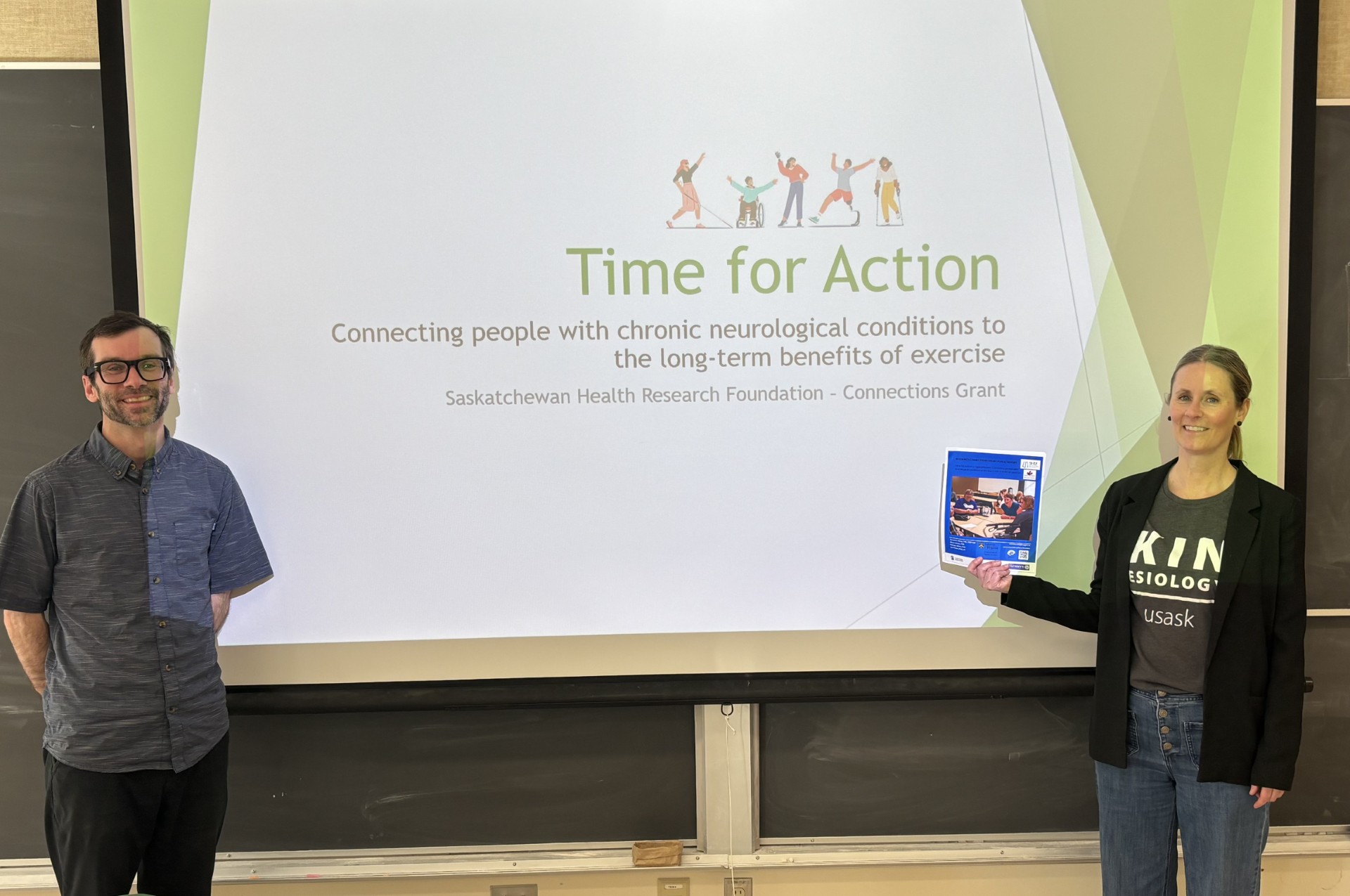
Researchers look to improve exercise opportunities for people living with chronic neurological conditions in Saskatchewan
With over 100,000 people in Saskatchewan living with chronic neurological conditions, five researchers connected with community members to promote opportunities for regular exercise to help people manage symptoms, support recovery and improve their quality of life.
By Alyssa Wiebe | Kinesiology CommunicationsThe team hosted community round table meetings in Prince Albert, Yorkton, Regina, Saskatoon, and Swift Current with people who currently live with chronic neurological conditions. These roundtables also included exercise professionals and health care providers to discuss accessibility and quality of exercise services across Saskatchewan.
During these meetings, their conversations focused on sharing research evidence of the benefits of long-term exercise, defining the gap between evidence and current practice, and exploring what services can be created, better supported, or enhanced to support people living with neurological conditions in engaging in exercise.
University of Saskatchewan associate professor, Alison Oates is part of that team looking to improve exercise opportunities for people in Saskatchewan living with chronic neurological conditions.
“This research captures and highlights the voices of both people living with chronic neurological conditions and health care providers in Saskatchewan,” said Alison Oates.
“The resulting recommendations provide ways to move forward including increasing experiential learning opportunities for students in Kinesiology and other Health Science disciplines to support people living with chronic neurological conditions within an exercise and rehabilitation setting.”
From these round tables, the expert panel made five recommendations related to;
- Practical training of students/professionals
- Information-sharing and partnership
- Accessible transportation
- Accountability for services
- Diverse perspectives
With the recommendations in hand, the team looks to inform communities on ways they can take initiative to increase delivery and use of exercise services for people in Saskatchewan living with chronic neurological conditions.
Team lead, Cameron Mang from the University of Regina, is excited to see these recommendations be put into action.
“A tremendous amount of research has demonstrated benefits of exercise for people living with the long-term effects of neurological conditions like stroke, brain injury, multiple sclerosis, Parkinson’s disease, and spinal cord injury,” said Cameron Mang.
“These recommendations were generated to help cultivate a future in which Saskatchewan residents living with neurological conditions can better access high-quality exercise services that meet their needs in their communities. Our hope is that the recommendations can be used to guide and support advocacy efforts and initiatives that connect people living with neurological conditions in Saskatchewan to the well-known benefits of exercise.”
With the recommendations being shared across Saskatchewan, they believe that this work will inspire communities to improve access to, and quality of, exercise services for people living with chronic neurological conditions in Saskatchewan.
This project was funded by a Saskatchewan Health Research Foundation (SHRF) Research Connections Grant, with matched funds provided through an anonymous donor and in-kind support from First Steps Wellness Centre, Regina.
If you are interested in learning more, you can read the final report here.
